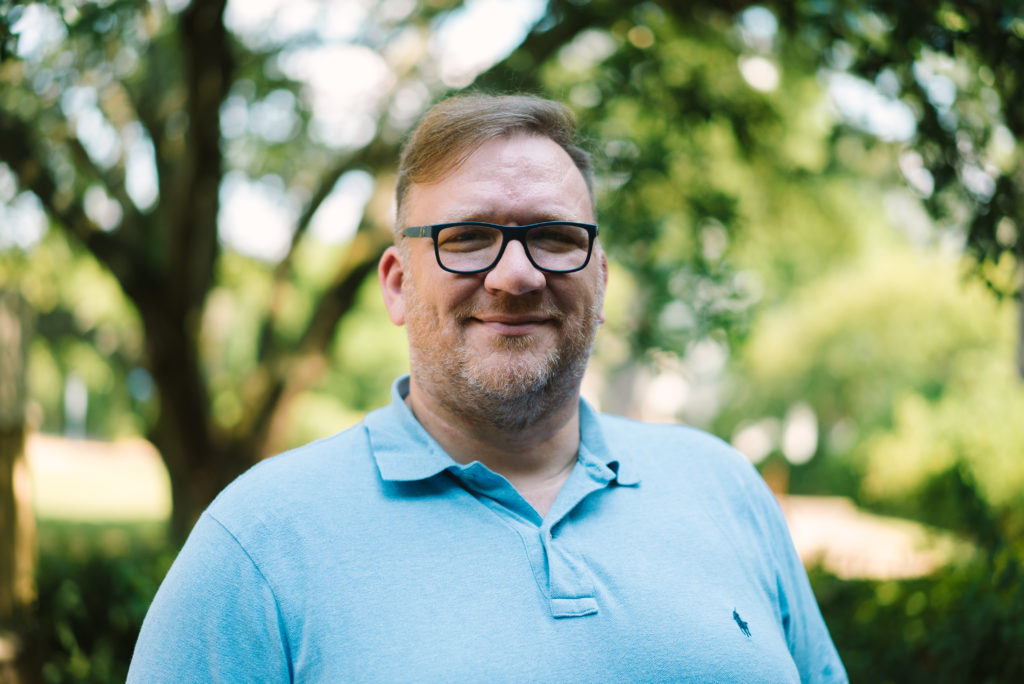Church Starts Ecotheology Series to Inspire Action

Fondren Presbyterian Church, located in Jackson, MS, recently concluded a series titled “Green Faith Series: Toward a Life of Creation Care” that was led by Rob Lowry, Pastor and Head of Staff. The series focused on ecotheology, which, according to Lowry, is the study of the household of God.
“The root of the word ecology is from the Greek word Oykos, which means household. So, ecology is the study of the household. If we understand creation as the household of God, all of a sudden creation stops being this other thing and it takes on a different kind of immediacy and importance,” said Lowry.
“I think the reason we find ecotheology to be so important is because the ecological crisis on our planet is an existential problem. It’s not a political problem. It’s not an economic problem alone. It’s an existential crisis.”
The 6-week series took on a different topic each week, ranging from food to water to the environment as a whole. During the third week of the series, the church brought in Dr. Stanley Saunders, an ecotheology professor at Columbia Seminary in Atlanta, to preach at the Sunday church service, and then the church had a farm-to-table lunch afterwards where people could come and talk to Dr. Saunders. The event had all locally sourced food and all biodegradable and reusable materials, as a way of modeling a possible takeaway from the series.
Why is ecotheology important to Christianity?
“As Christians, we feel like ecotheology is an important issue because it is the household of God, but also because it impacts the very existence of the thing God created and called good. So it’s an existential issue that requires that kind of depth of conversation and commitment to us. I won’t speak of any other religious tradition, but I would say that in many other religious traditions the same is true,” said Lowry.
Each Wednesday there would also be a bible study to unpack what was discussed at the worship from the prior Sunday. Lowry broke it up into two sections: unpacking biblical texts and then dissecting data.
“I brought a lot of data and information that I found in my research about the way our consumption and the means of our consumption impacts creation. Everything from how much water we use on a daily basis to plastic bags from the grocery store to sourcing food from around the world. I think the data is helpful to understand. The numbers give you a sense of the scope.”
“A lot of the information was just staggering. We had a sense as a community that there’s a lot we can be doing to lower our carbon footprint, to change our climate impact and our environment impact as individuals and as a church.”
Lowry stated that the main goal of the series was to pair theology with living. “Our spiritual development is not just about thinking about things, it’s about doing things. It’s making our insides match our outsides.”
Fondren Presbyterian hopes that by doing series that deal with ecotheology, other churches will be inspired to start similar conversations. The church itself had such a good experience with learning about ecotheology that they will continue studying similar ideas with a book group starting in the fall.
Want to get your own ecotheology series started?
For organizations who are interested in spending some time on ecotheology in their own church, Lowry emphasized the importance of narrowing down the field of study. “You can’t watch the news and not see it. We all know cognitively that there’s an issue. The struggle we had was making it manageable and picking some topics and narrowing them enough to where we could go deep in it. You could spend all your time just on the surface.”
Lowry also recommended making it a part of the whole life of the congregation. The Green Faith series was a sermon, a bible study, and a special event.
“That’s the best decision we made, was making this a sermon series and a bible study series and having a special event in the middle of it with our lecture. It just sort of saturated the life of the church. We all just sat with it together for 6 weeks, so, by the end, everybody was thinking about it, and everybody had time to think about it,” said Lowry.
Bringing the series out of the church and involving the local community was also helpful in the process.
“Do it in a way that fits your local context. We talked about it in terms of what it means to be people of privilege living in a community like Jackson, and one of the things we really talked about seriously was that there are a lot of options that you have to take in your life, in terms of actions of justice and eco-justice. We began looking at those systemic questions. Making it relevant to your local context was really important for us. We made it fit.”
To learn more about Fondren Presbyterian Church, check out their Facebook.
